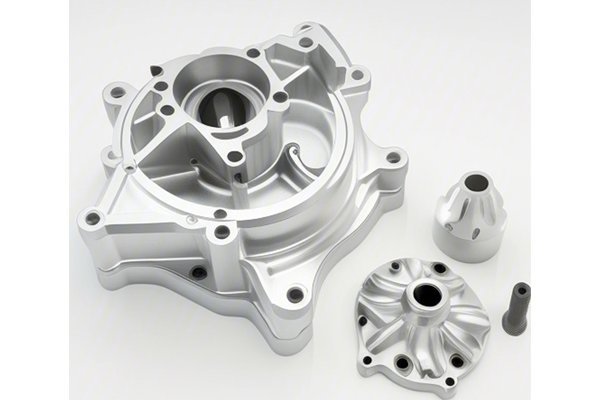Imagine you own a manufacturing company that relies heavily on precision components for your products. You place an order for critical CNC machined parts, eagerly awaiting their arrival. However, due to unforeseen delays in the machining process, your production line comes to a halt, leading to significant financial losses and customer dissatisfaction. This scenario underscores the importance of timely delivery in CNC machining—a critical aspect that can make or break a business relationship.
To put it into perspective, a survey conducted by a leading manufacturing association found that 85% of companies believe timely deliveries are crucial in maintaining supplier relationships. So, how can CNC machining companies guarantee that they meet customers’ delivery expectations consistently? This blog will delve into effective strategies, technologies, and best practices that ensure delivery timeframes are not just promises, but commitments upheld by reliable processes.
Understanding the Importance of Delivery Time
Delivery time is more than just a number; it symbolizes reliability, trust, and professionalism in the manufacturing world. When a CNC machining service can consistently deliver within the agreed timeframe, it fosters customer loyalty and can significantly enhance a company’s reputation. Conversely, erratic delivery schedules can tarnish a company’s image, leading to lost contracts and diminished customer trust.
The Cost of Delayed Deliveries
Delays in delivery may seem like a minor inconvenience, but their impact can ripple throughout a business. According to research, the costs associated with delayed components can reach up to 20% of the total project budget. This includes the direct costs of rescheduling production, penalties for late delivery, and the lost opportunity cost of not meeting customer demand.
Analyzing Potential Causes of Delays
Before implementing solutions, it’s crucial to identify the root causes of delivery delays in CNC machining. Common factors include:
By recognizing these potential pitfalls, CNC machining companies can take proactive steps to enhance their operations.
Strategies for Guaranteeing Timely Deliveries
Now that we’ve identified the challenges, let’s explore strategic approaches that CNC machining services can adopt to enhance their delivery timelines.
Utilize Advanced Planning Software
Many CNC machining organizations are leveraging advanced planning software like Enterprise Resource Planning (ERP) systems that integrate various aspects of production—from inventory management to workflow scheduling. Such software can help outline realistic timelines based on machine availability, worker capacity, and material readiness.
Create Buffer Times
While it’s essential to adhere to timelines, adding buffer periods for unforeseen delays can safeguard against disruptions. For instance, if a project is estimated to take 10 days, planning for an 11 or 12-day timeline allows for extra time without causing significant inconvenience to clients.
Establish Strong Relationships with Suppliers
A reliable supply chain is the foundation of timely delivery. CNC machining companies can ensure that they have strong relationships with multiple suppliers to secure essential materials. This redundancy allows for alternative sourcing routes in case of material shortages.
Order Materials in Advance
Where possible, CNC machining facilities should adopt a strategy of ordering materials well in advance of when they are needed. Implementing a just-in-time (JIT) inventory model can also optimize material flows and minimize delays.

Scheduled Maintenance
It’s vital to adhere to rigorous maintenance schedules for CNC machines. Regular check-ups can help prevent unexpected breakdowns that could lead to downtime.
Invest in Modern Equipment
Upgrading to newer, more efficient machinery can reduce operational hiccups and enhance productivity, allowing for quicker turnaround times.
In-process Quality Checks
Instead of waiting until the end of the production cycle to conduct quality checks, CNC machining companies should introduce in-process inspections. This method can identify defects early on, reducing the need for extensive rework and minimizing delays.
Continuous Training for Employees
Providing employees with regular training and updates on the best practices for quality assurance can help maintain high standards and reduce the likelihood of errors that could lead to delays.
Utilize Collaboration Tools
Adopting collaborative tools that facilitate regular communication between departments can ensure that every person involved in the production process is aligned on timelines and expectations.
Regular Check-ins and Updates
Holding regular status update meetings with teams to discuss project timelines, resource allocation, and challenges can mitigate misunderstanding and reinforce a culture of accountability.
Invest in CNC Software Solutions
Many CNC machining companies are adopting advanced CNC software for programming and operational management. These platforms can streamline processes, reduce errors, and enhance overall efficiency.
Automation of Processes
Where feasible, automating repetitive tasks can significantly reduce lead times, minimize human error, and enable faster production cycles.
Continuous evaluation of production processes is critical. Companies can conduct regular audits to identify areas for improvement and optimize operations accordingly.
: Building a Reliable Delivery System in CNC Machining
In conclusion, guaranteeing the delivery time of CNC machining processes is achievable through a multifaceted approach focused on proactive planning, strong supplier relationships, current machinery, rigorous quality controls, effective communication, and technological investment.
By implementing these strategies, CNC machining facilities can significantly enhance their reputation and reliability, ensuring they meet customer expectations consistently. Timely delivery is not just a logistical concern; it’s a critical factor in building lasting customer relationships and achieving sustainable business growth.
To summarize, ensure that your production planning is robust, your supply chain is reliable, your machinery is well-maintained, and your communication is clear. The effectiveness of these techniques underlines the essence of timely delivery in CNC machining processes. Reflecting upon these insights can help bolster your operational strategy and solidify your standing as a reliable CNC machining provider.
By emphasizing these aspects, CNC machining companies can not only survive but thrive in a competitive landscape, ensuring their customers remain satisfied and loyal. This importance should not be underestimated—especially in an industry where each cut and mold can define the future of partnerships and potential growth.






